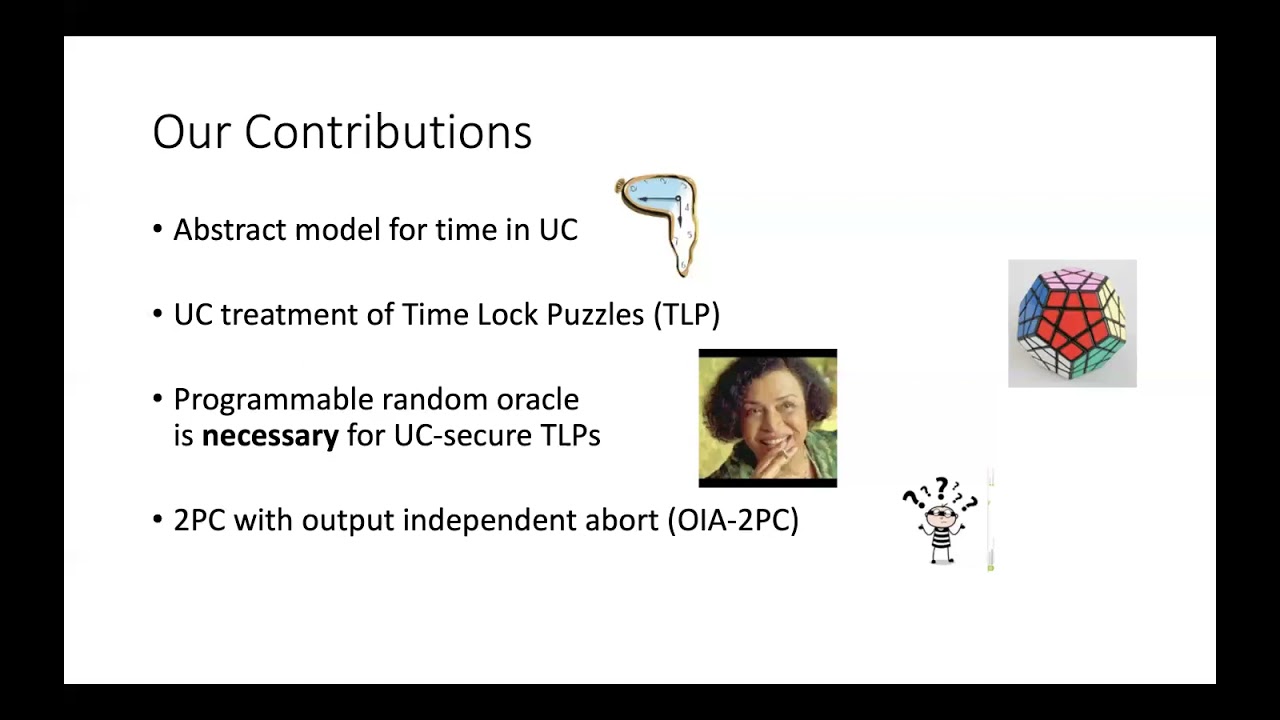Welcome to the resource topic for 2020/537
Title:
TARDIS: A Foundation of Time-Lock Puzzles in UC
Authors: Carsten Baum, Bernardo David, Rafael Dowsley, Jesper Buus Nielsen, Sabine Oechsner
Abstract:Time-based primitives like time-lock puzzles (TLP) are finding widespread use in practical protocols, partially due to the surge of interest in the blockchain space where TLPs and related primitives are perceived to solve many problems. Unfortunately, the security claims are often shaky or plainly wrong since these primitives are used under composition. One reason is that TLPs are inherently not UC secure and time is tricky to model and use in the UC model. On the other hand, just specifying standalone notions of the intended task, left alone correctly using standalone notions like non-malleable TLPs only, might be hard or impossible for the given task. And even when possible a standalone secure primitive is harder to apply securely in practice afterwards as its behavior under composition is unclear. The ideal solution would be a model of TLPs in the UC framework to allow simple modular proofs. In this paper we provide a foundation for proving composable security of practical protocols using time-lock puzzles and related timed primitives in the UC model. We construct UC-secure TLPs based on random oracles and show that using random oracles is necessary. In order to prove security, we provide a simple and abstract way to reason about time in UC protocols. Finally, we demonstrate the usefulness of this foundation by constructing applications that are interesting in their own right, such as UC-secure two-party computation with output-independent abort.
ePrint: https://eprint.iacr.org/2020/537
Talk: https://www.youtube.com/watch?v=3FvHP5x_ppY
See all topics related to this paper.
Feel free to post resources that are related to this paper below.
Example resources include: implementations, explanation materials, talks, slides, links to previous discussions on other websites.
For more information, see the rules for Resource Topics .
